There's still time to force bulbs for Christmas – and plant experts say this stunning selection is the best to choose from
Bring your tablescape to life with indoor florals that uplift festive décor
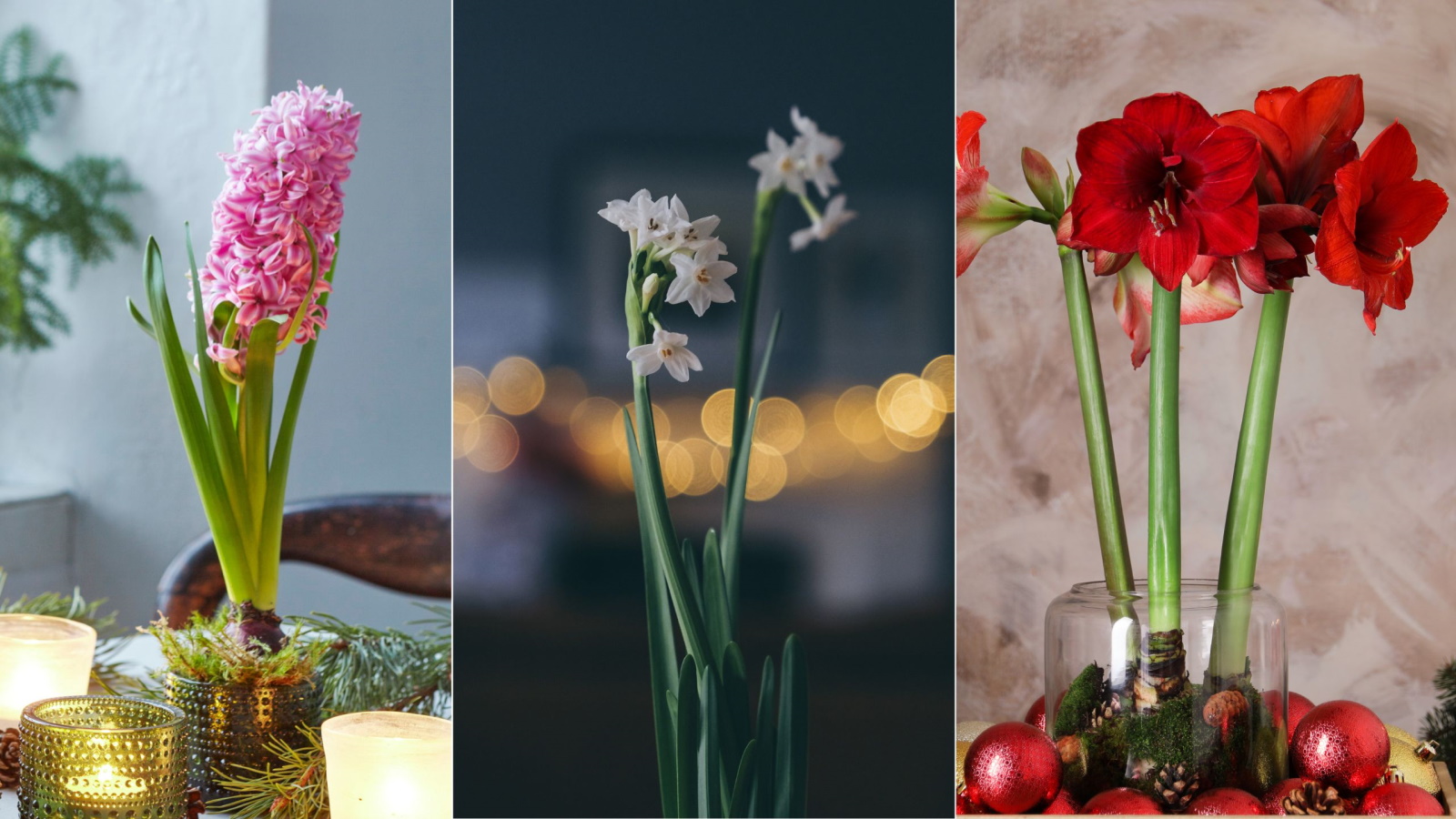

One of my favorite parts of decorating for Christmas is bringing the outdoors in by using some of the most beautiful festive florals and foliage. Forcing bulbs is a popular practice during the festive season, creating conversation-starter centerpieces and bringing the Christmas table to life.
Learning how to force bulbs is fairly easy. It consists of tricking popular bulbs to bloom out of season indoors. There are so many bulbs you can force, but some just give you an extra festive feeling with their shapely florals and vibrant hues.
Keen to incorporate this trend on your Christmas table this year, but not sure which flowers to opt for? Look no further - here, I've compiled the ultimate list of indoor bulbs to force for Christmas.
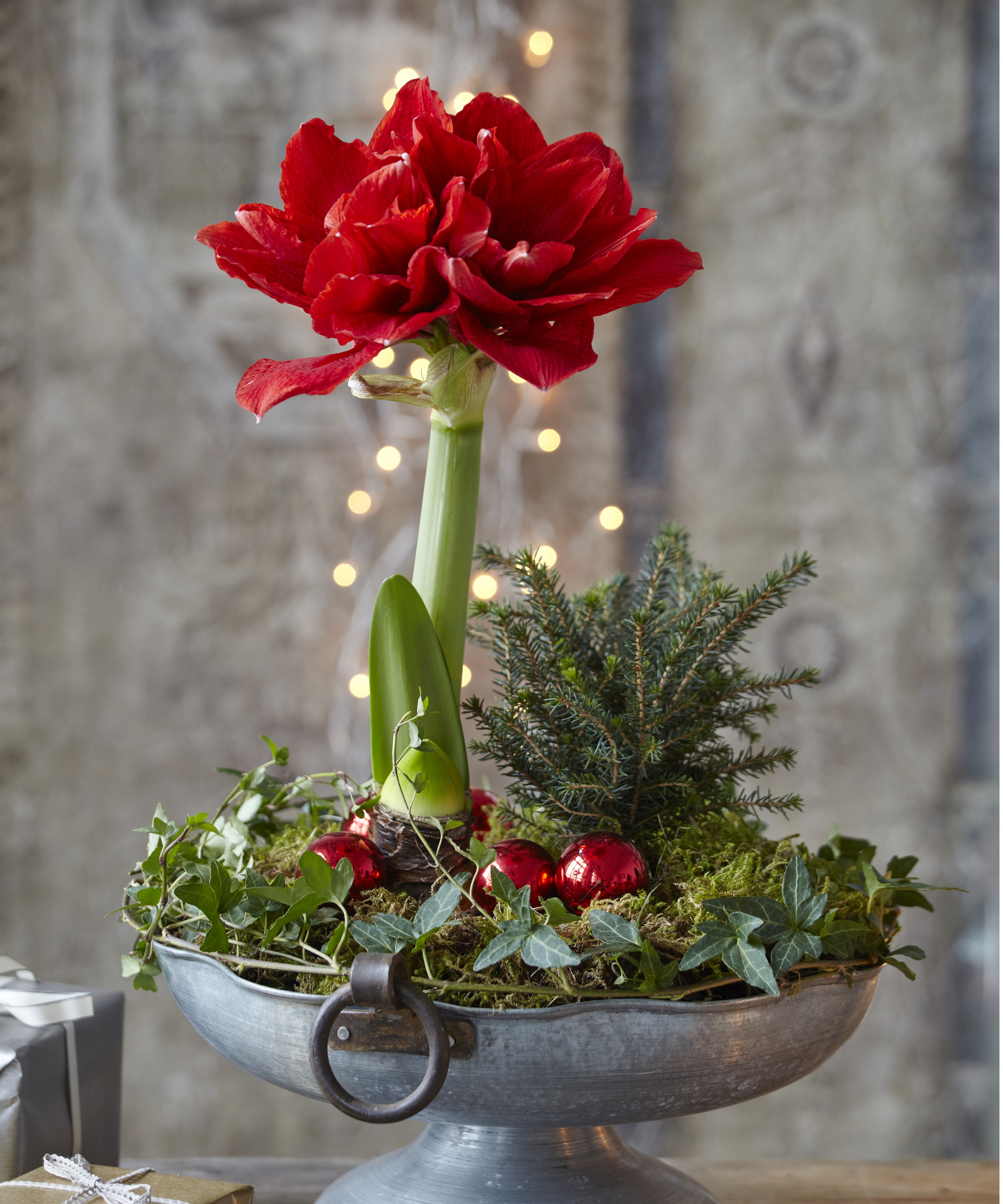
5 gorgeous indoor bulbs to force for Christmas
'To force bulbs to bloom outside their natural season, you'll need to recreate ideal conditions - the right temperature, soil moisture, and lighting. It's also essential to choose high-quality planting material. Ensure the bulbs are dry and free of spots or mold,' advises Julia Omelchenko, botany expert for the Plantum app.
You should also be aware some bulbs require a period of chilling for several weeks before planting to force, so it can require some forward planning. Nevertheless, no matter which of the best indoor bulbs to force for Christmas you choose, I promise having these florals in your home will bring joy to you and your guests.
1. Hyacinths
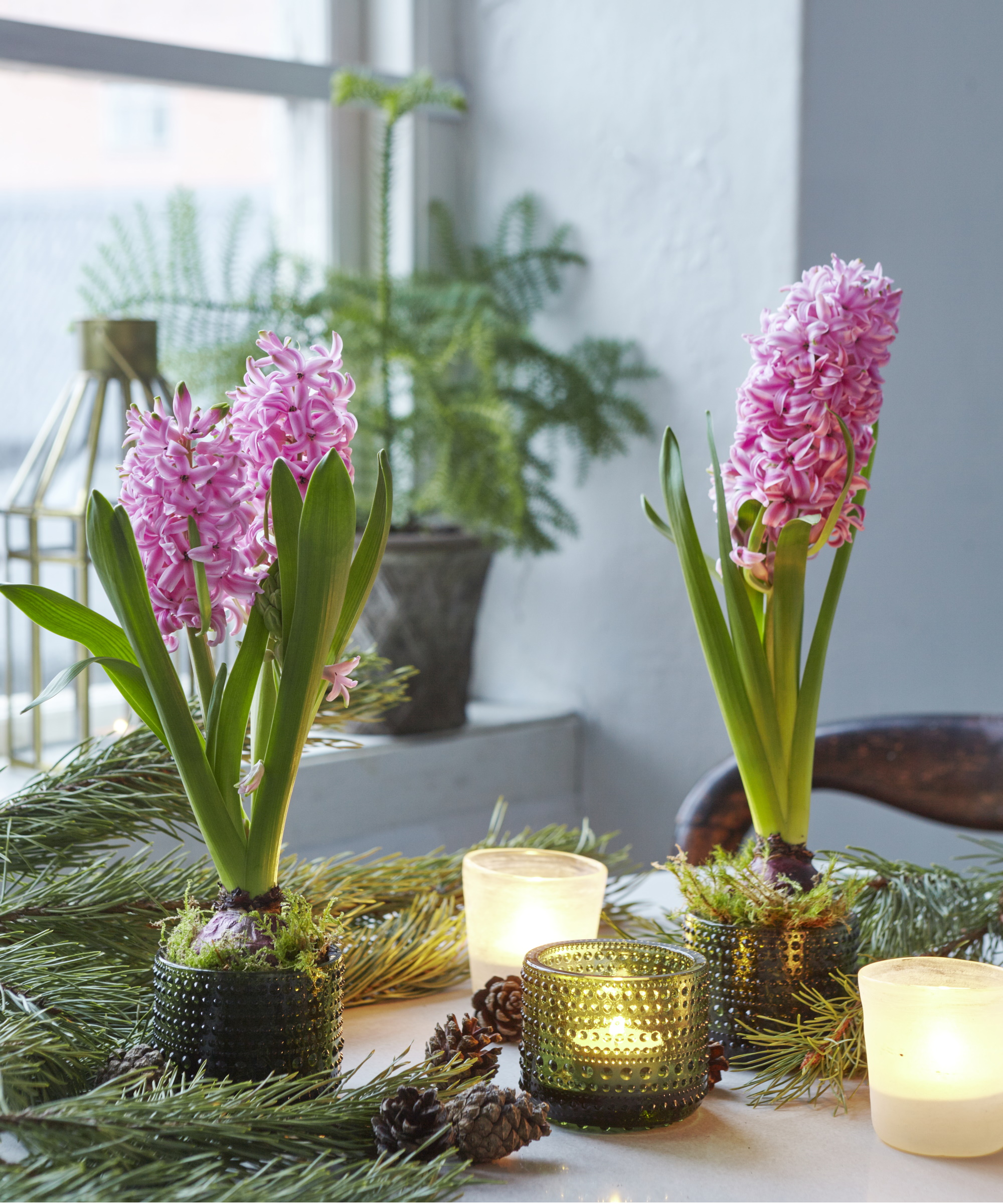
Charming, colorful and beautiful in clusters, hyacinths are a timeless choice for indoor bulb forcing. Generally speaking, hyacinth varieties are easy to grow, and they're just as easy to force in winter.
Hyacinths are best forced in water, experts note. 'Place the bulb in a forcing jar filled with water that comes to just below the bottom of the bulb so the roots can reach into it but the bulb doesn’t get wet and potentially rot,' explains Julie Bawden-Davis, indoor plant expert at Healthy Houseplants.
You can buy a bulb forcing jar from a range of retailers - like this bulb forcing jar from Walmart. As Julie notes, make sure not to let the bulb sit in water which could cause rot.
'Provide bright, indirect light once the plant begins growing. Before that, keep in medium light,' Julie advises.
However you decide to display your forced hyacinths, like in the jar with moss pictured above, you need to provide the same care as you would when growing hyacinth bulbs in containers. Make sure to not let the hyacinths dry out, otherwise their blooms may fade more quickly.
Explore the wide range of hyacinth bulbs on offer at Nature Hills.

Julie Bawden-Davis is a garden author and University of California Certified Master Gardener, who has written several gardening books, including Indoor Gardening The Organic Way. In addition to running HealthyHouseplants.com, she shares indoor gardening advice on her YouTube channel @HealthyHouseplants.
2. Paperwhites
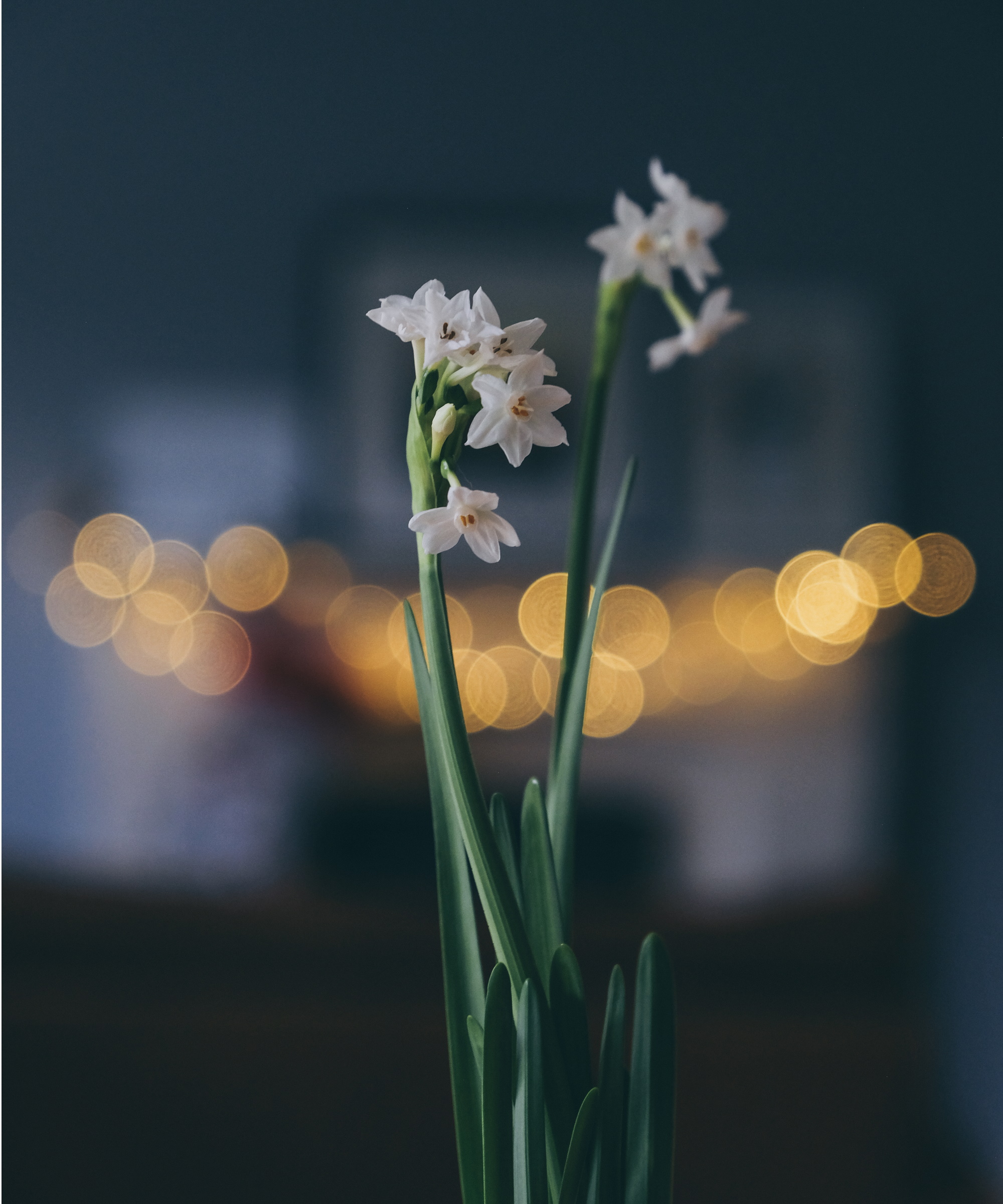
If you're a fan of the white Christmas tree trend and want to create your very own white Christmas at home, try forcing paperwhite narcissus. They're particularly loved for their sweet fragrance which makes them one of the best indoor plants to make a living room smell nice.
'This narcissus species doesn’t require chilling, making it an excellent option for beginners or those with limited time,' says Julia.
'You can plant the bulb in soil or place it in a shallow container filled with water and pebbles. For an added stylish touch, use a glass container with decorative stones or beads,' she suggests.
Knowing when to plant paperwhites is important if you want to grow paperwhites in a jar in time for Christmas. The good news is, these bulbs take just a few weeks to root and bloom.
'Maintain a temperature of 65°F while the paperwhite roots. At this stage, the plant doesn’t require light, but once the roots have formed, move the pot to a location with indirect light. Keep the temperature between 61 and 65°F and add water as it evaporates. Paperwhite shoots grow quickly, and you’ll likely see the first flowers in four to six weeks,' Julia explains.
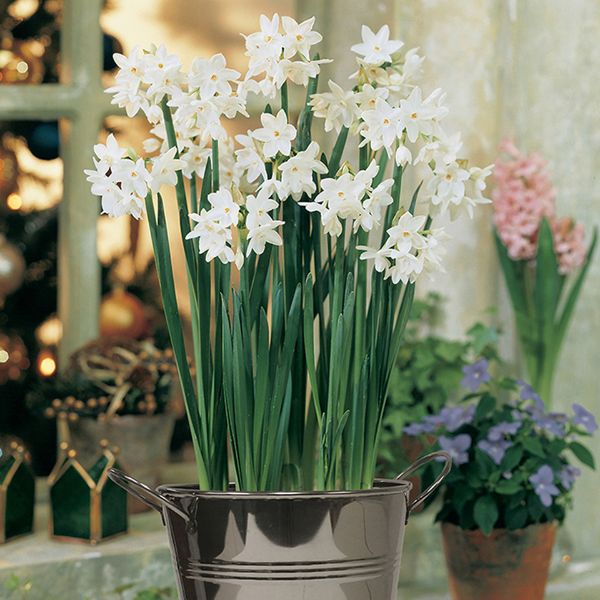
This paperwhite set has everything you need to grow these beautiful bulbs indoors for Christmas. It comes with bulbs, three festive pots, three liners, soil pellets and instructions to get you started.

Julia Omelchenko is a professional botany expert for the Plantum app that helps users identify plant species, diagnose their conditions, and get specific care advice. She has 4 years of experience consulting on botany-related topics for Plantum (formerly NatureID). Her areas of specialization include phytopathology, plant physiology, and plant biochemistry.
3. Amaryllis
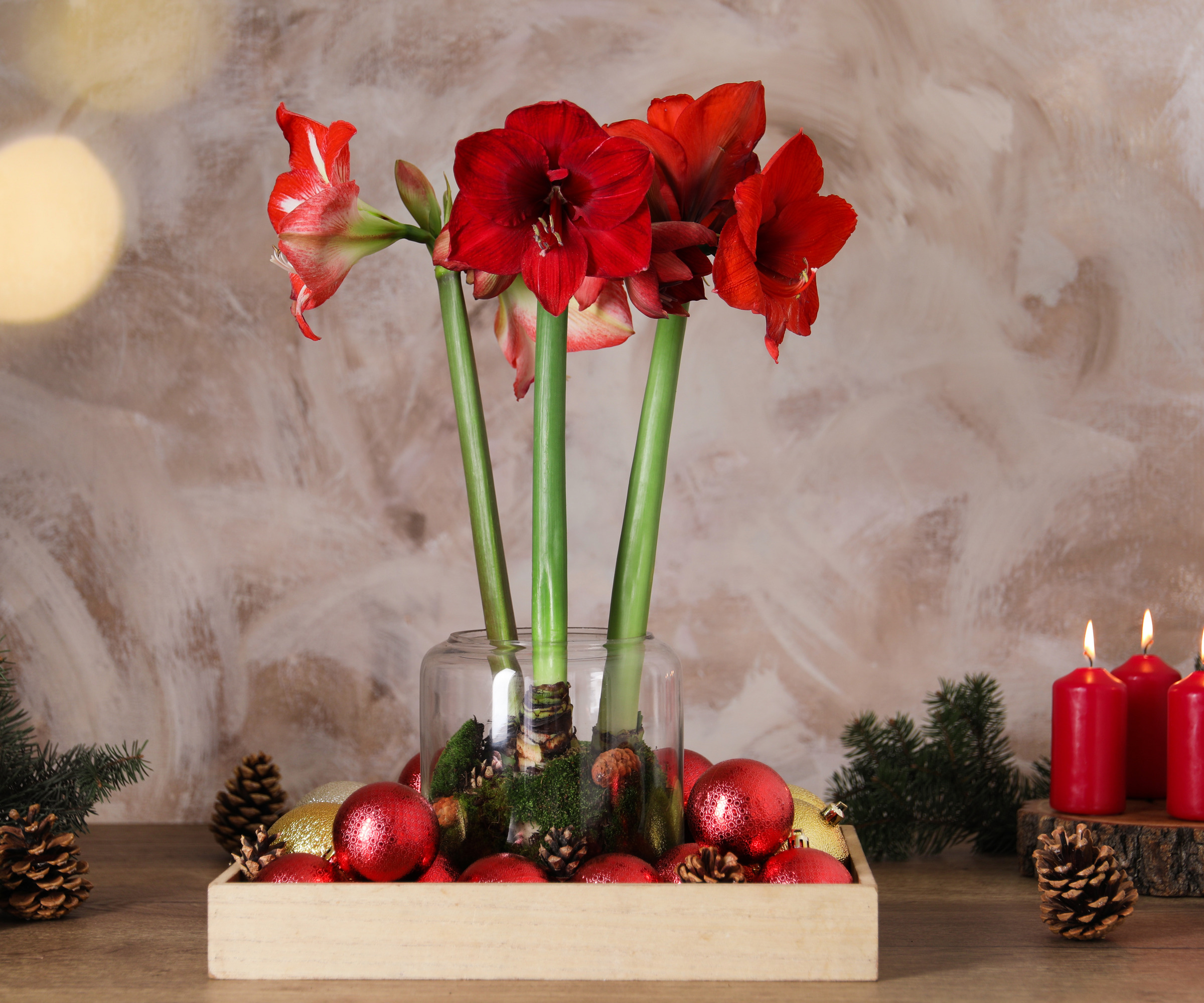
This is a classic choice of Christmas plant, for its deep red hue and variety of unique patterns. These bulbs also match the color of popular poinsettias and together can make an impactful display.
'The amaryllis is one of the most popular bulbous plants to force indoors for the holiday season. Its large, funnel-shaped flowers can grow up to 10 inches and come in a variety of hues, from soft whites to bright pinks and vivid reds,' Julia says.
You can either use the same water method as hyacinths to force these bulbs, or opt for forcing them in soil.
'Fill a pot with a loose, well-draining mix, which can consist of peat, perlite, and sand. Plant amaryllis bulbs with the pointed end up, ensuring only the bottom two-thirds are covered with soil, and gently tamp down the growing medium,' Julia explains.
When forcing bulbs in soil, make sure to use a pot with a drainage hole to avoid oversaturation and root rot which may impact the bulb's ability to bloom. These nursery pots with drainage holes from Amazon are a good choice.
'Place the pot in a warm location with a temperature of around 70°F. The amaryllis thrives in bright, filtered light,' Julia adds. 'With proper care, the bulb will develop a flower stalk followed by leaves. This process takes about six to eight weeks, so plan the planting accordingly to ensure the plant blooms by Christmas,' she adds.
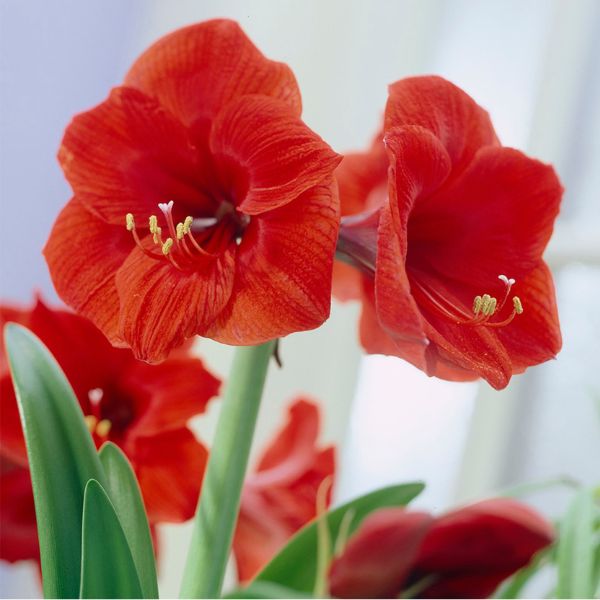
Saturated red blooms with curved petals, the Red Lion Amaryllis has huge blooms to impress your Christmas guests. Featuring multiple buds on each stem, these large bulbs can often form two to three shoots.
4. Tulips
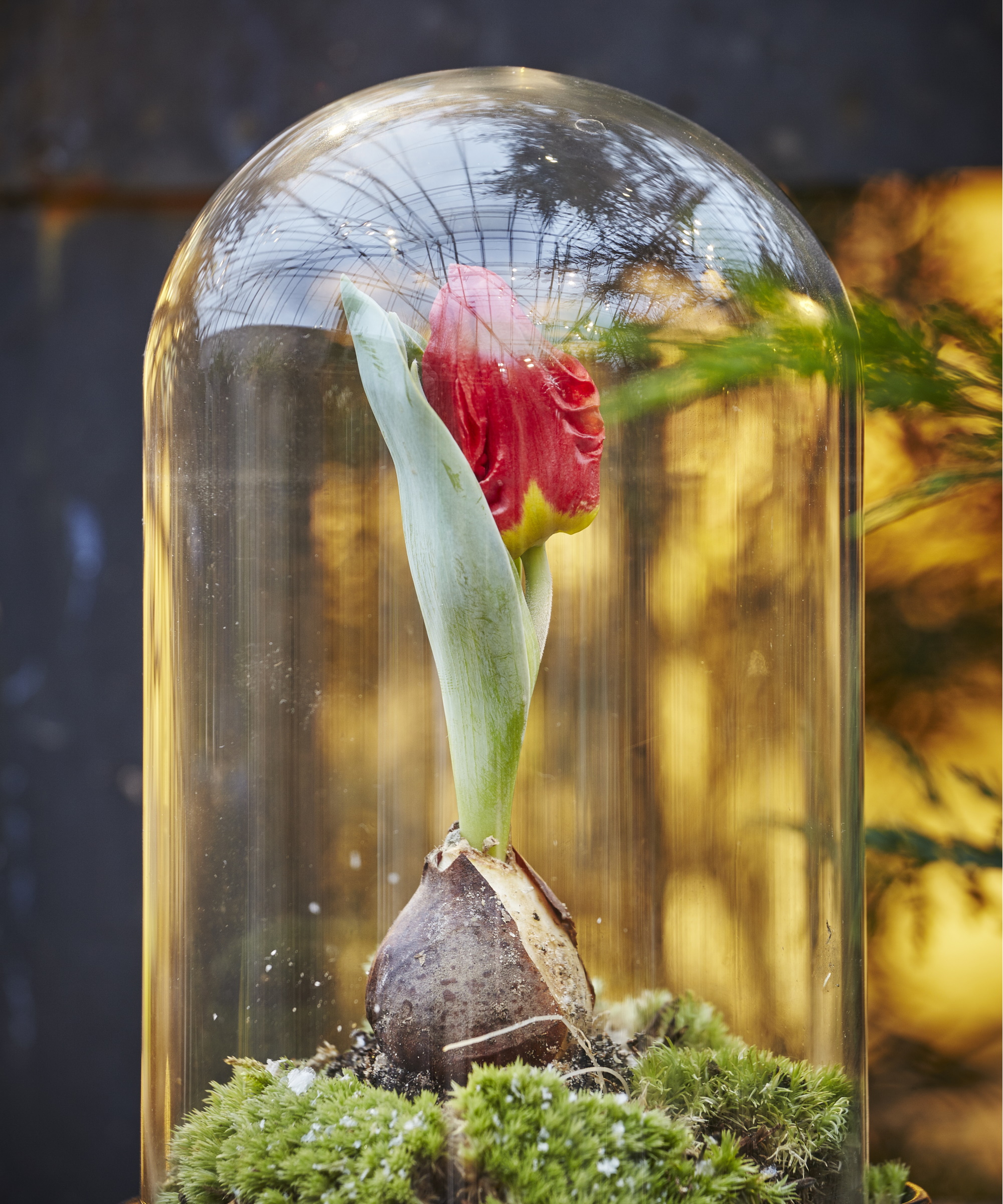
For a more unconventional option, but a stunning one nonetheless, try forcing tulips to incorporate in your festive displays this year. The joy of this springtime favorite is there are so many types of tulips in a wide range of colors and patterns, so you can really choose them to suit your interior theme over the winter period.
'Although tulips are traditionally associated with spring, they can also be forced to bloom in winter, offering a vibrant splash of color for the holiday season,' Julia says.
One thing to note, however, is you need a little bit of advance planning for forcing this bulb: 'Unlike some other bulbs, tulip bulbs need a chilling period of 12–16 weeks at 36-45°F,' Julia notes. This is part of the seed stratification (or bulb stratification) process that tricks the tulip bulbs into thinking they're in a dormant season and emerging into spring, when they bloom.
'Fill pots that have drainage holes with a well-draining growing medium, and plant tulip bulbs with their pointed ends up. Water the soil generously and place the pots in a cool, dark spot,' advises Julia. 'During this chilling period, keep the soil slightly moist, but avoid sogginess,' she adds.
After chilling, move your tulip bulbs somewhere brighter and warmer. 'Gradually increase the light exposure. This will encourage the tulips to grow, and the first flowers will appear in three to four weeks,' Julia says.
Explore the gorgeous tulip bulbs available at Nature Hills.
5. Snowdrops
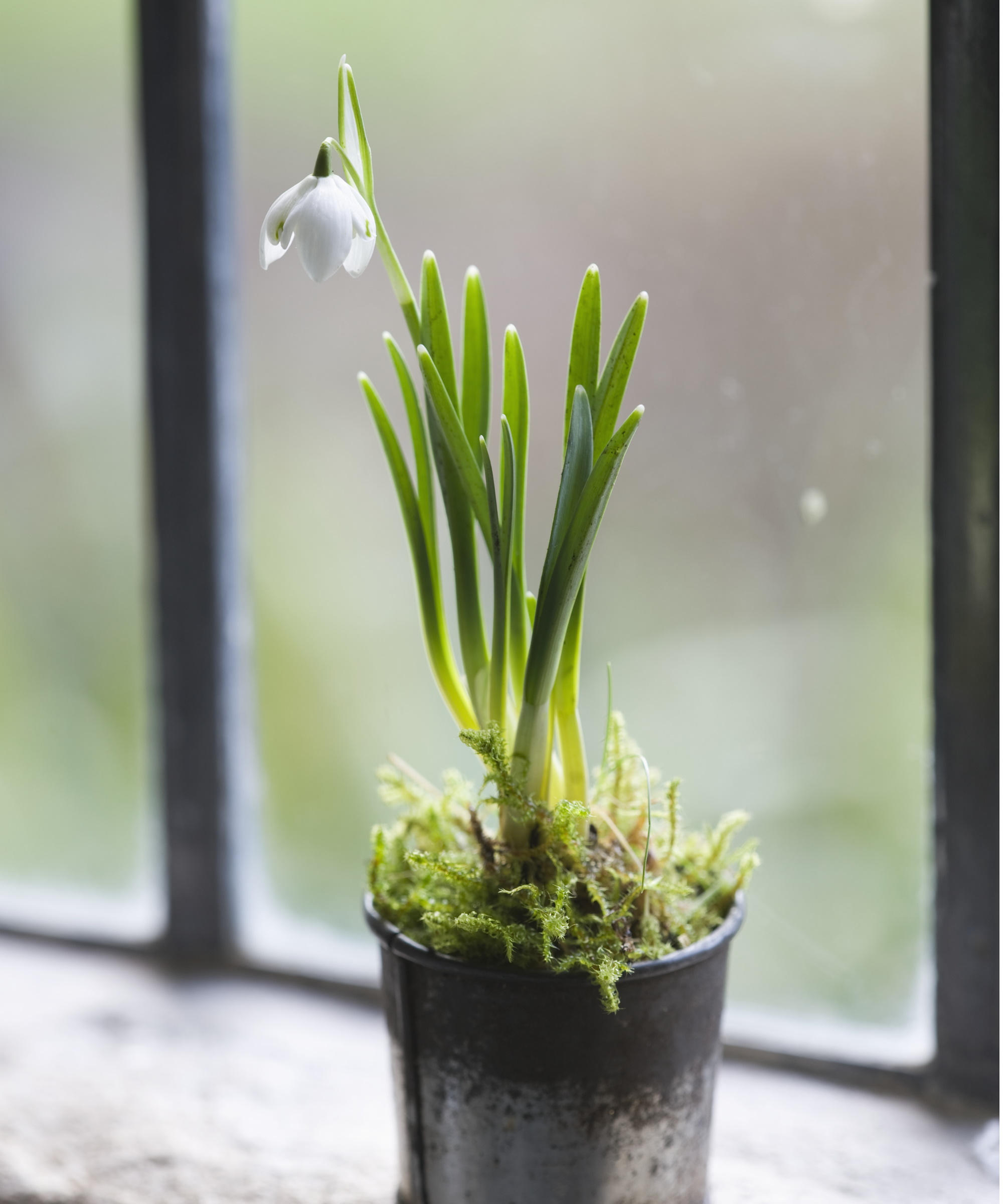
This is one of my favorite choices of bulbs to force for Christmas, adding dainty charm to festive set-ups. There are so many types of snowdrops to choose from, but the best snowdrops to grow can all be forced indoors for Christmas.
Like tulips, snowdrop bulbs also need a chilling period. 'This can be done by putting them in the refrigerator for a period of several weeks,' notes Julie Bawden-Davis.
As a winter flower, you then need to move your snowdrop bulbs to somewhere that isn't too warm. 'Snowdrops can be forced in soil. They require cool conditions to grow and bloom, so put them in the coolest area of your house,' suggests Julie.
When planting snowdrop bulbs, make sure to once again have the pointed edge facing up. You can also extend the life of these flowers by planting snowdrops in the green in your yard after they finish blooming.
These snowdrop bulbs from Amazon are a good place to start if you're keen to force them.
FAQs
How do you stop forced bulbs flopping over?
Forced bulbs are popular floral decoration for the festive period. One issue you may encounter, however, is being able to keep the stem of your bulbs stay upright. Luckily, there are a couple of solutions to this issue.
'You can use a 4-6% alcohol solution to slow their growth and strengthen them. This won’t harm the flowers, so there’s no need to worry about affecting the blooms,' explains Julia Omelchenko, botany expert for the Plantum app. 'Replace regular water with this solution once the stalks reach two inches in height, but avoid higher concentrations that could damage the plant,' she advises.
Alternatively, you can use something like these plant supports from Walmart, or even use a houseplant trellis.
I would be delighted to see any one of these indoor bulbs to force for Christmas at festive gatherings this year. They're a simple way to enhance displays, but can also be used in other ways: 'Bulbous plants make excellent Christmas gifts,' Julia notes. These bulbs can also be paired with Christmas foliage to bring an enchanting feel to your home.
Sign up to the Homes & Gardens newsletter
Design expertise in your inbox – from inspiring decorating ideas and beautiful celebrity homes to practical gardening advice and shopping round-ups.

Tenielle is a Gardens News Writer at Homes & Gardens. She holds a qualification in MA Magazine Journalism and has over six years of journalistic experience. Before coming to Homes & Gardens, Tenielle was in the editorial department at the Royal Horticultural Society and worked on The Garden magazine. As our in-house houseplant expert, Tenielle writes on a range of solutions to houseplant problems, as well as other 'how to' guides, inspiring garden projects, and the latest gardening news. When she isn't writing, Tenielle can be found propagating her ever-growing collection of indoor plants, helping others overcome common houseplant pests and diseases, volunteering at a local gardening club, and attending gardening workshops, like a composting masterclass.
-
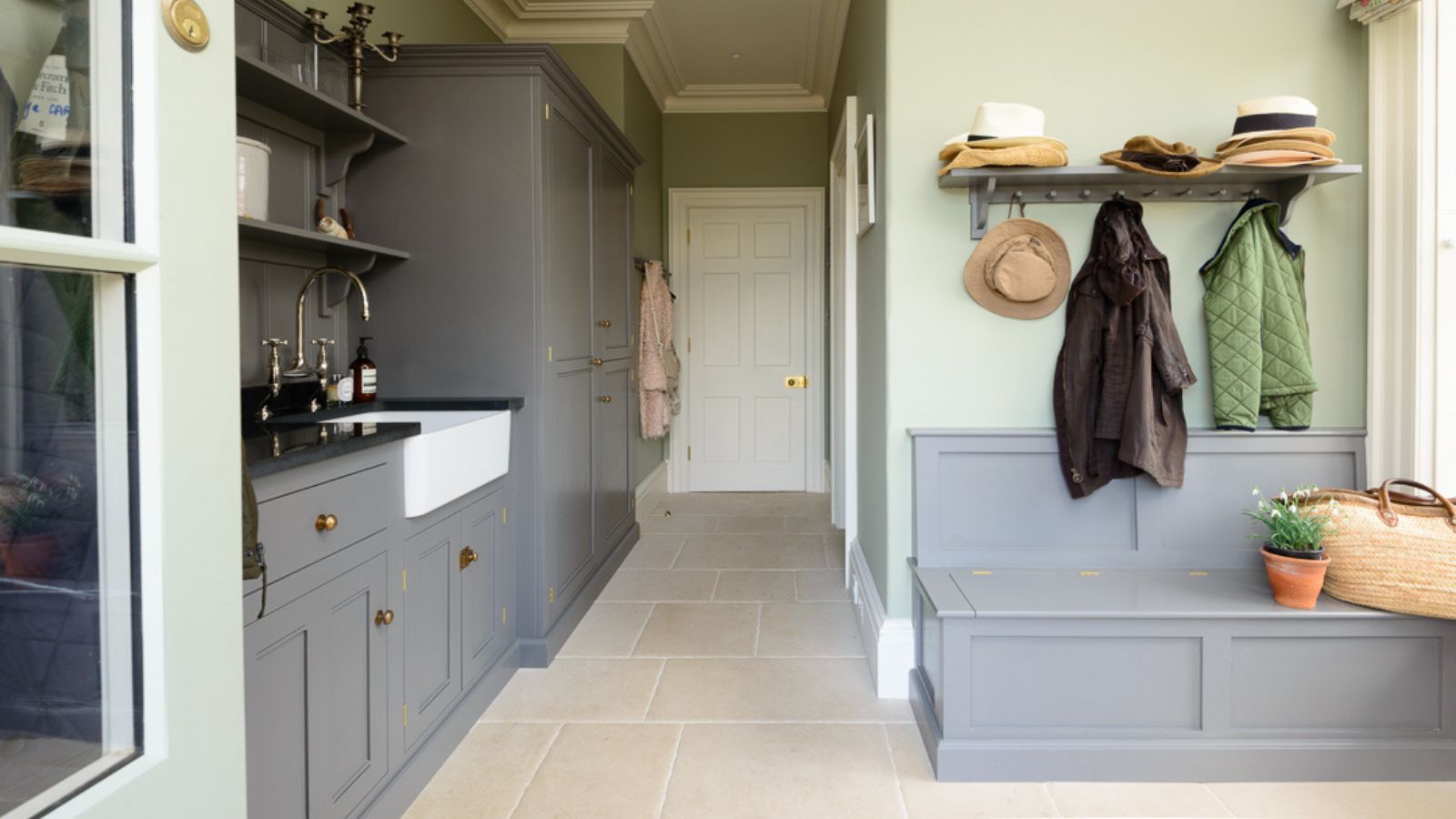 I've spent 200+ hours testing vacuums and tried the viral tea bag vacuum hack to deodorize naturally. The results surprised me
I've spent 200+ hours testing vacuums and tried the viral tea bag vacuum hack to deodorize naturally. The results surprised meIt worked better than I expected, but it's not the most effective method out there
By Dan Fauzi
-
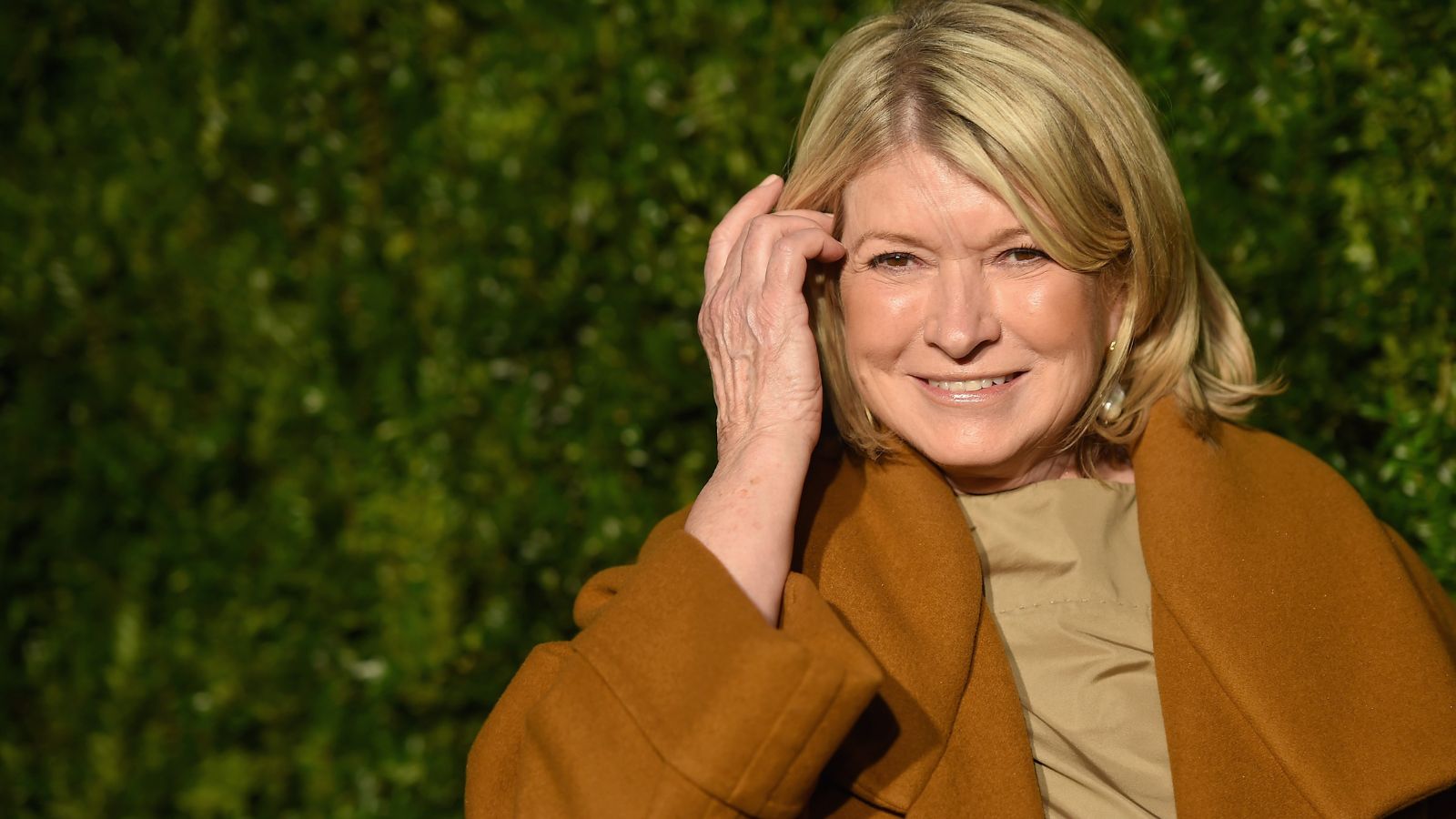 Martha Stewart's outdoor zoning method is the secret to seamless hosting for summer 2025 – it's changed how I arrange furniture on my patio
Martha Stewart's outdoor zoning method is the secret to seamless hosting for summer 2025 – it's changed how I arrange furniture on my patio11 years ago, Martha shared an intelligent way to organize your outdoor space for hosting season – it's just as smart over a decade later
By Megan Slack
-
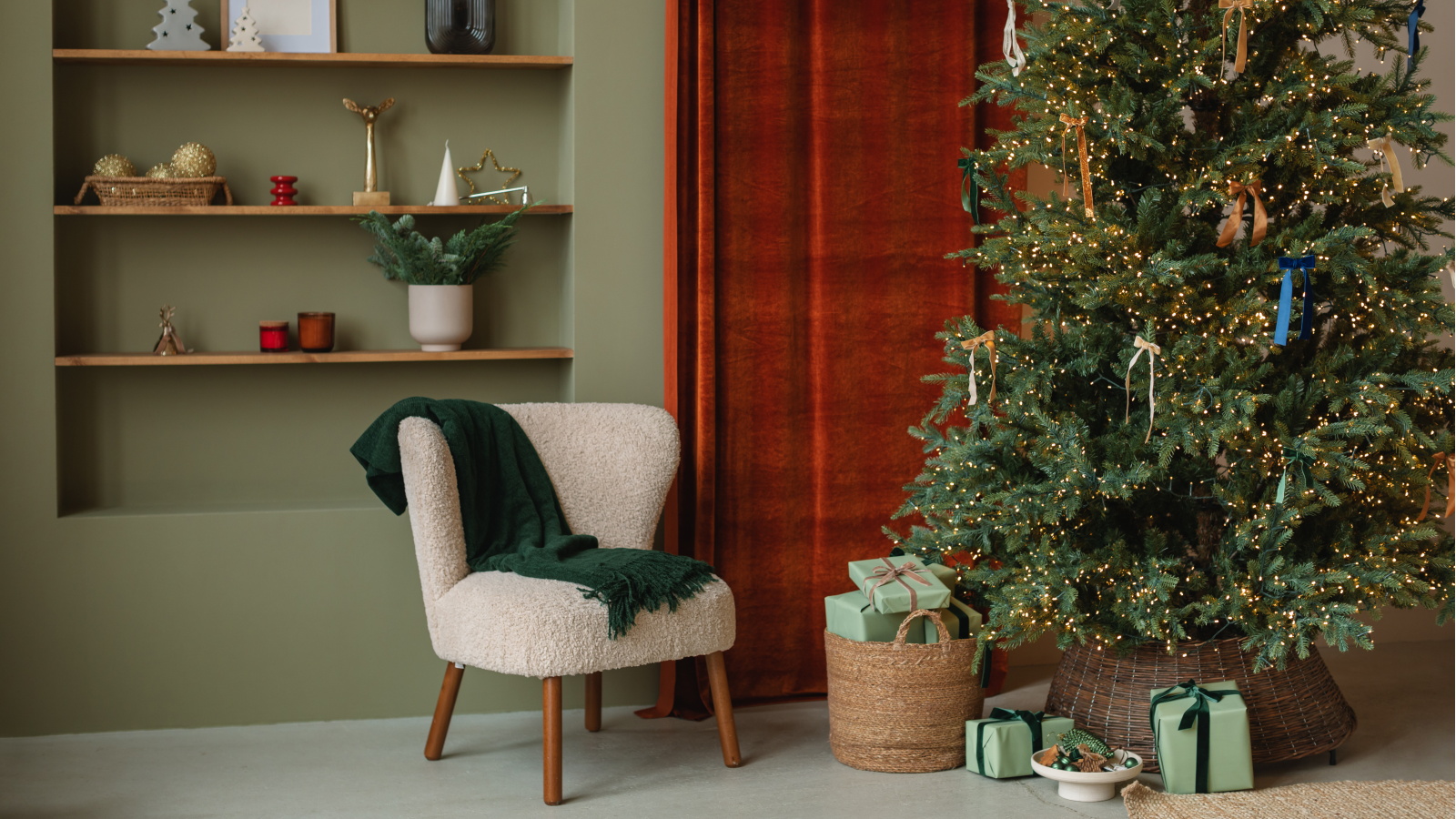 How to reuse your Christmas tree – 5 innovative uses in your yard beyond the festive season
How to reuse your Christmas tree – 5 innovative uses in your yard beyond the festive seasonJust because the festivities are over, it doesn't mean your Christmas tree has no purpose
By Tenielle Jordison
-
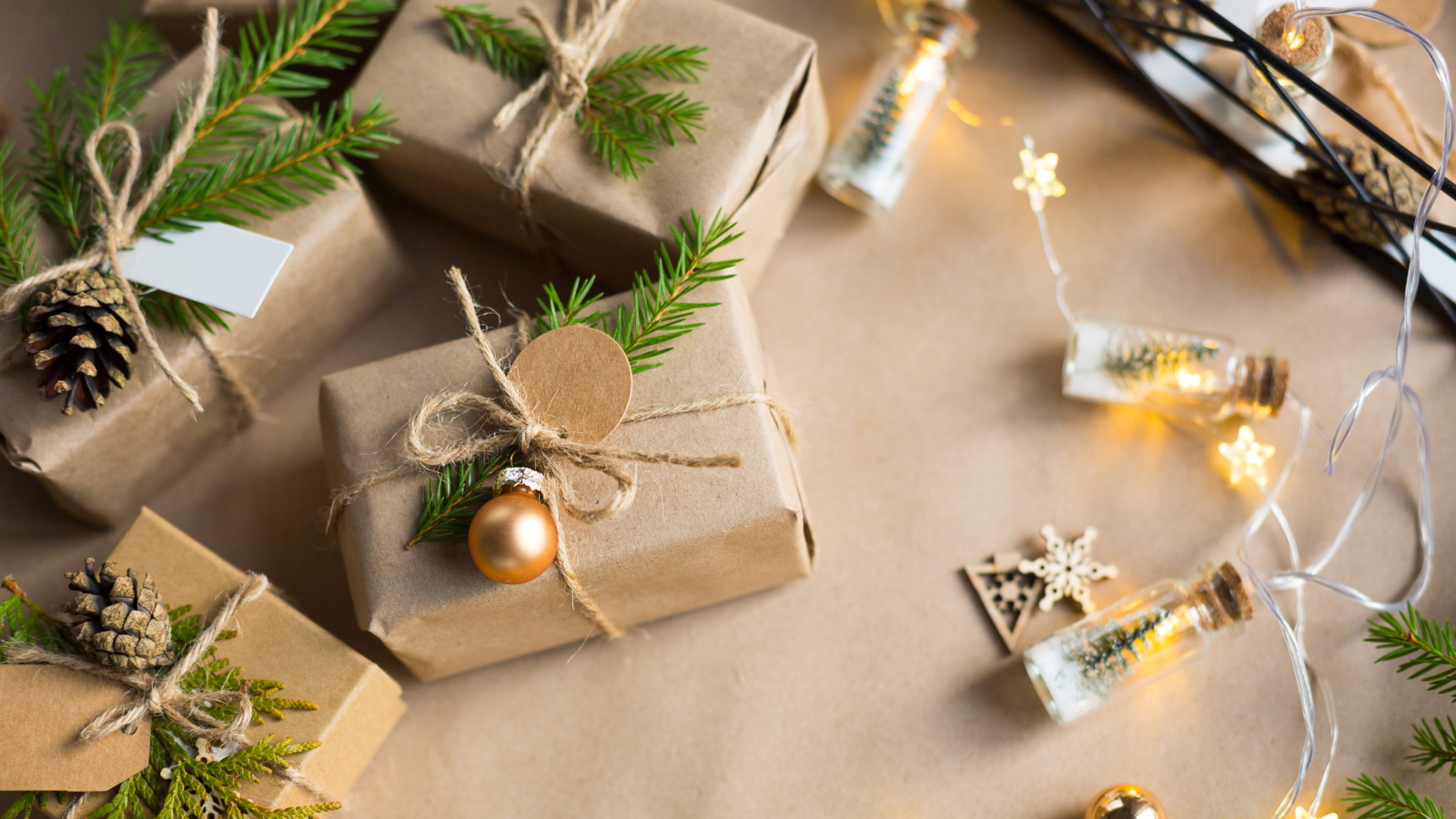 It's the most wasteful time of the year – so instead of throwing away your holiday trash, turn these 5 items into nutritious compost for your plants
It's the most wasteful time of the year – so instead of throwing away your holiday trash, turn these 5 items into nutritious compost for your plantsThere are plenty of things you can put in your compost bin during the festive season
By Tenielle Jordison
-
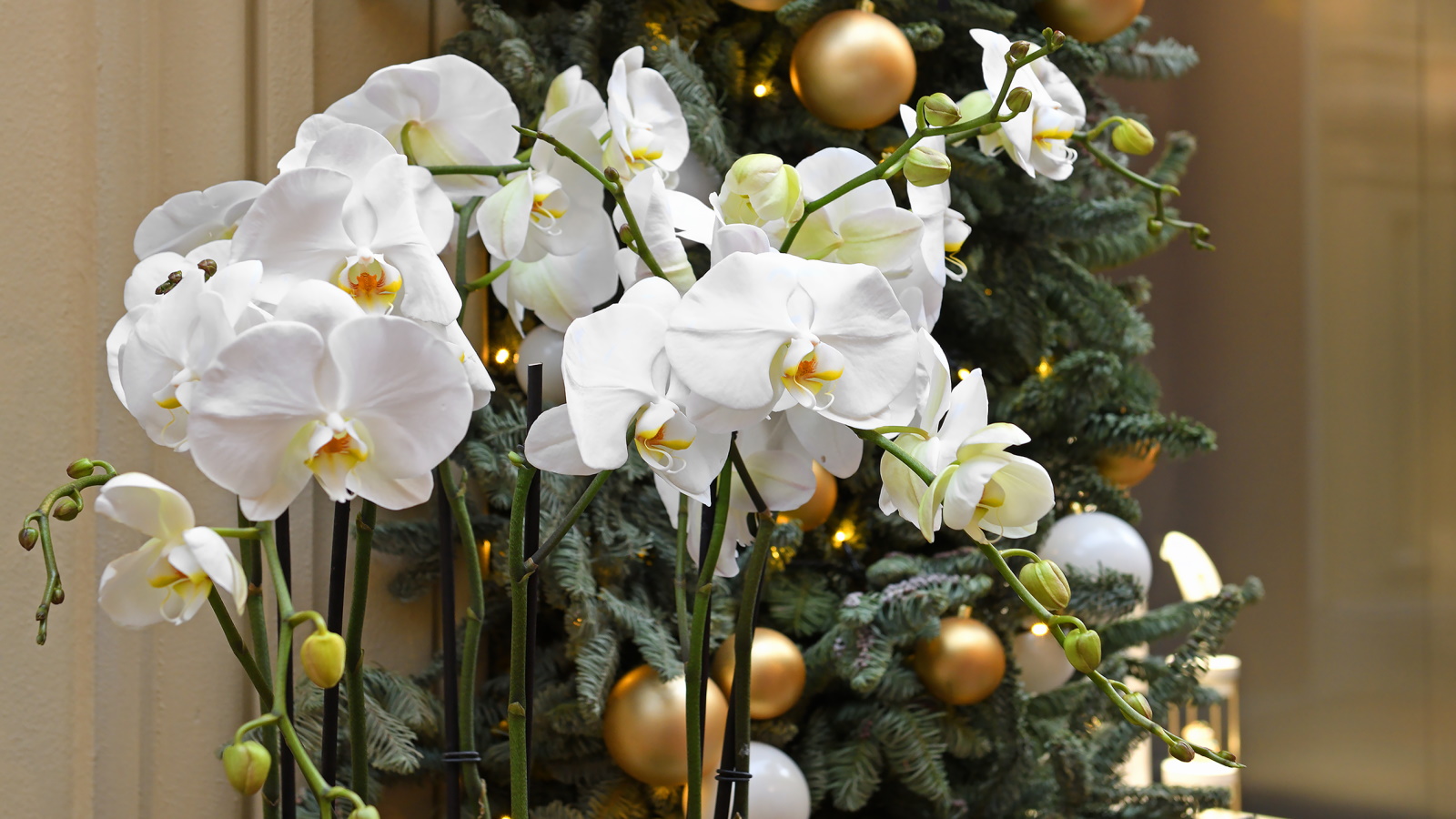 Christmas orchids – 5 varieties guaranteed to to give you that festive feel
Christmas orchids – 5 varieties guaranteed to to give you that festive feelLooking for some unique festive florals? Uplift your arrangements with these exotic blooms
By Tenielle Jordison
-
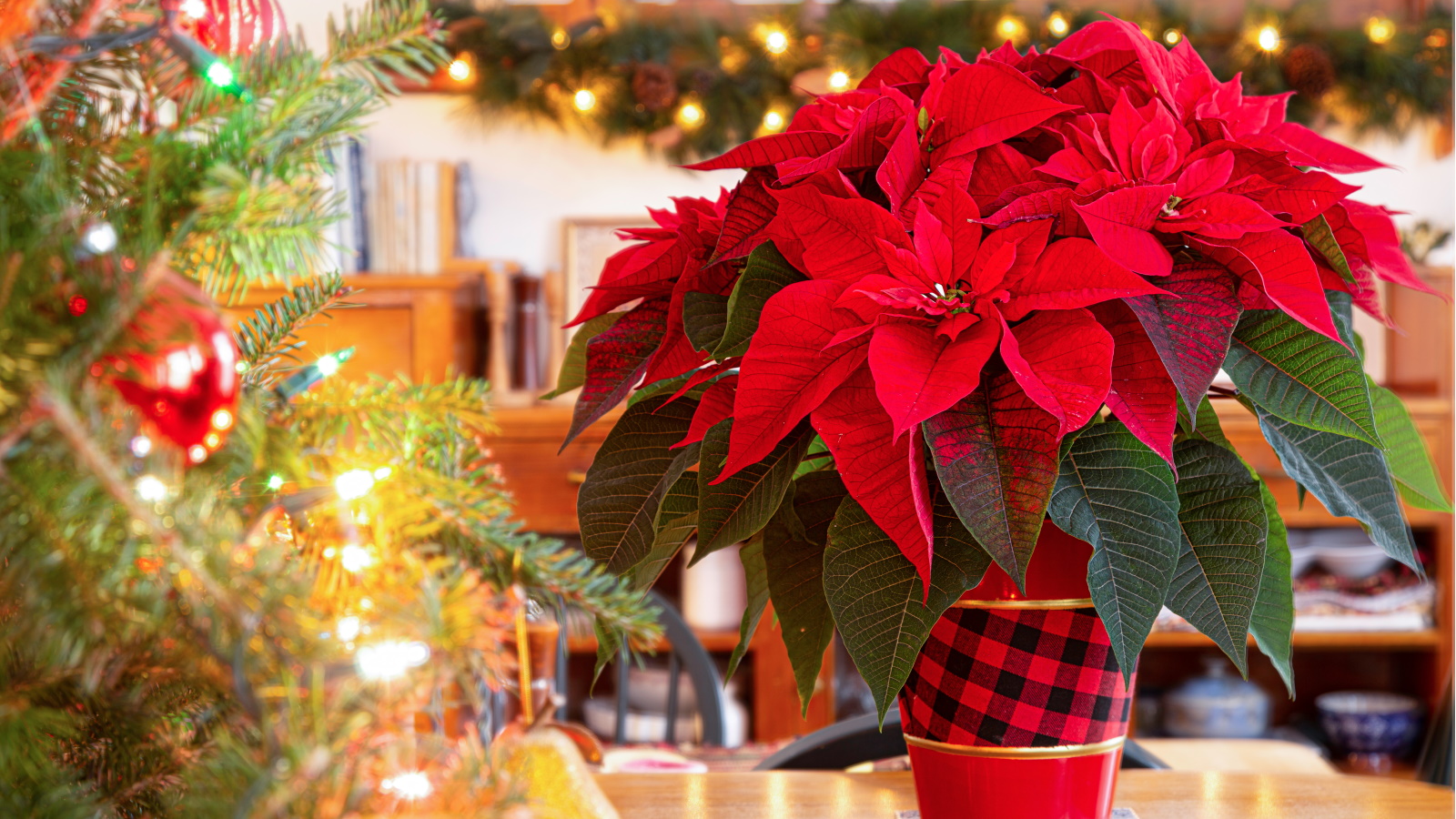 Poinsettia mistakes – 5 to avoid this Christmas to keep this holiday houseplant happy
Poinsettia mistakes – 5 to avoid this Christmas to keep this holiday houseplant happyThis festive favorite is notorious for wilting quickly when given improper care
By Tenielle Jordison
-
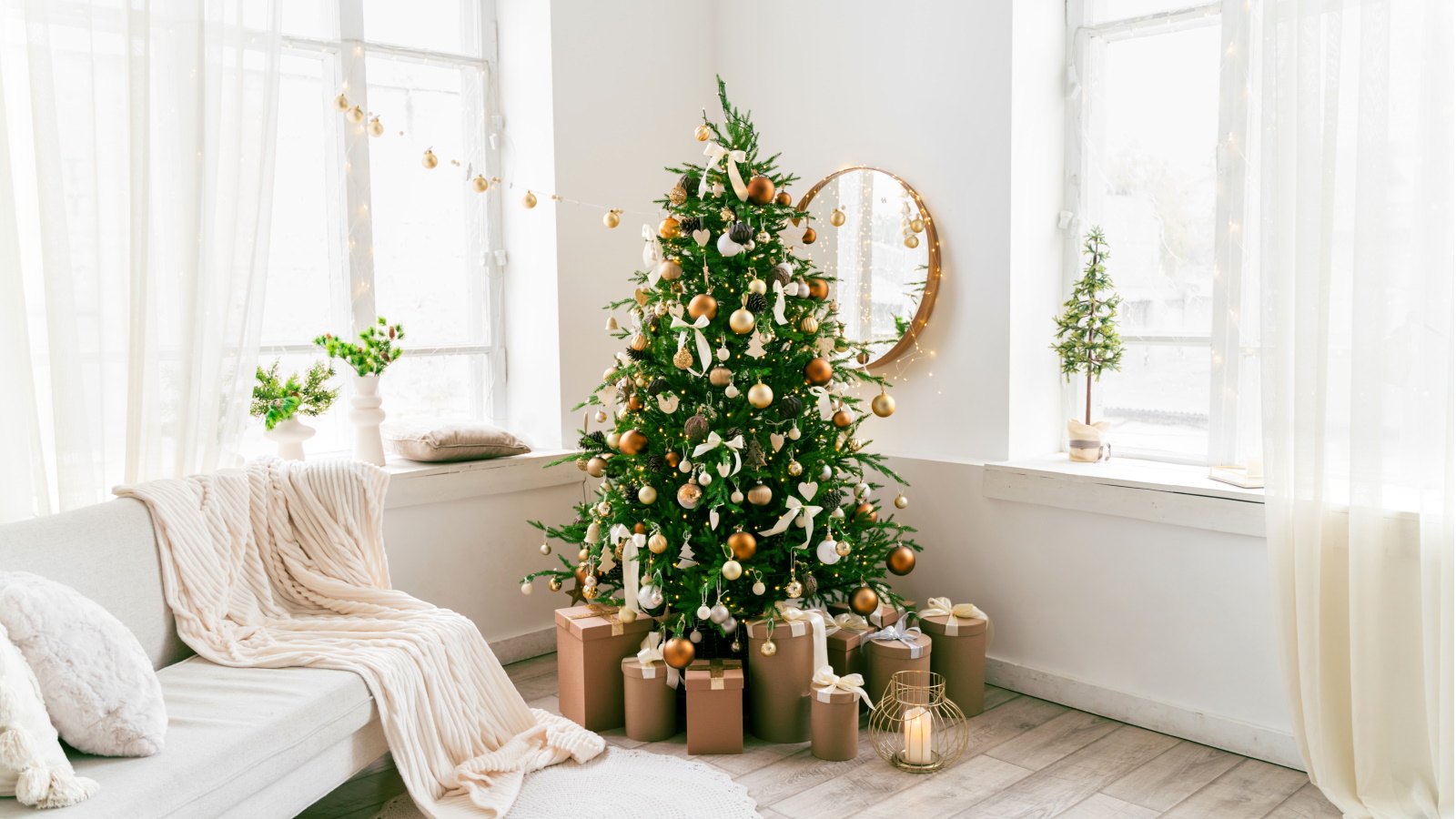 6 real Christmas tree mistakes experts want you to avoid this year – to keep your tree looking its best for longer
6 real Christmas tree mistakes experts want you to avoid this year – to keep your tree looking its best for longerThese common errors can be easily avoided when purchasing and caring for your Christmas tree
By Tenielle Jordison
-
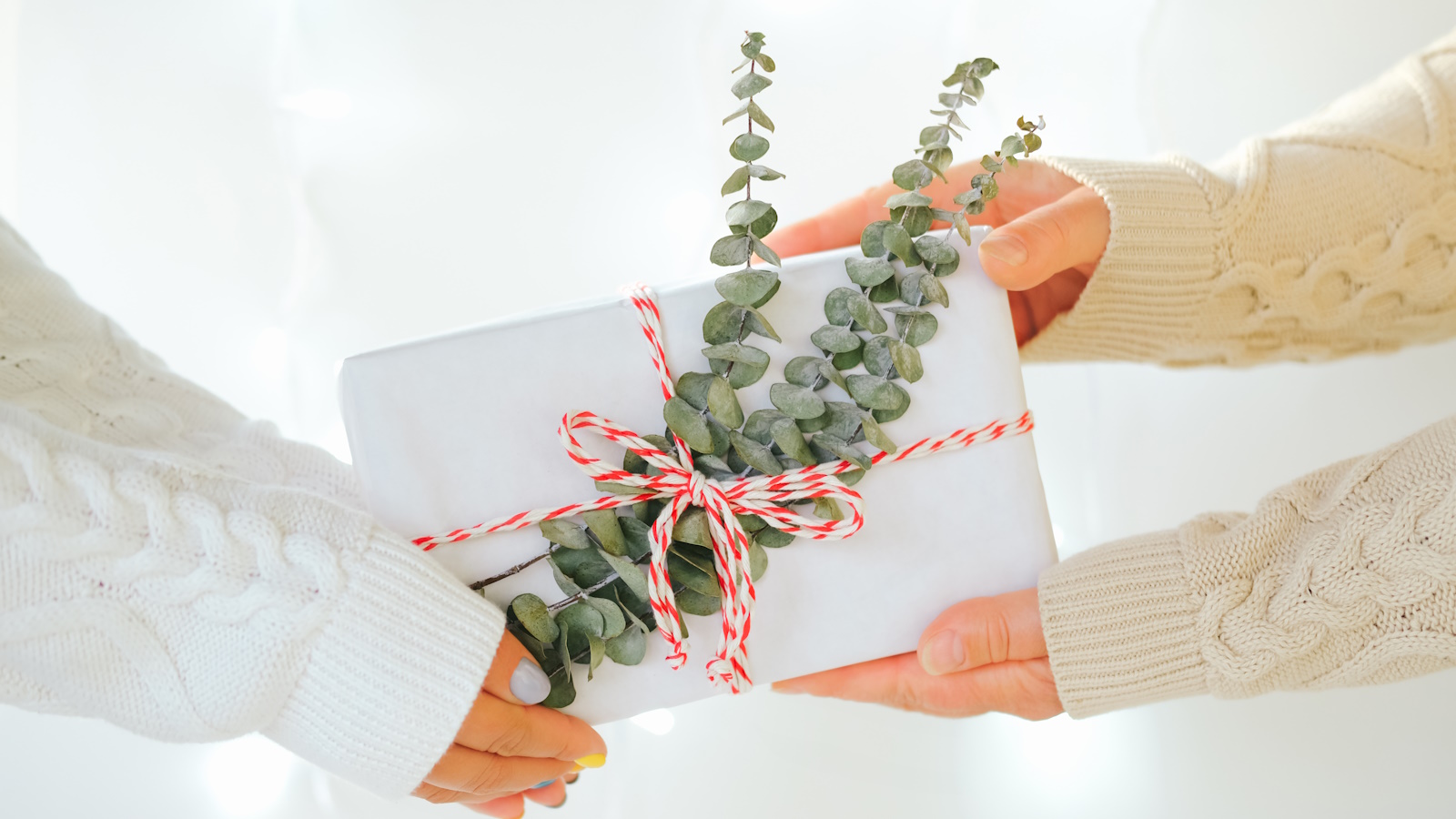 Best scented foliage for festive decorations – 7 enchantingly fragrant evergreens that encapsulate Christmas
Best scented foliage for festive decorations – 7 enchantingly fragrant evergreens that encapsulate ChristmasDiscover the most fragrant foliage for your Christmas decor with our florist-recommended selection
By Rachel Bull
-
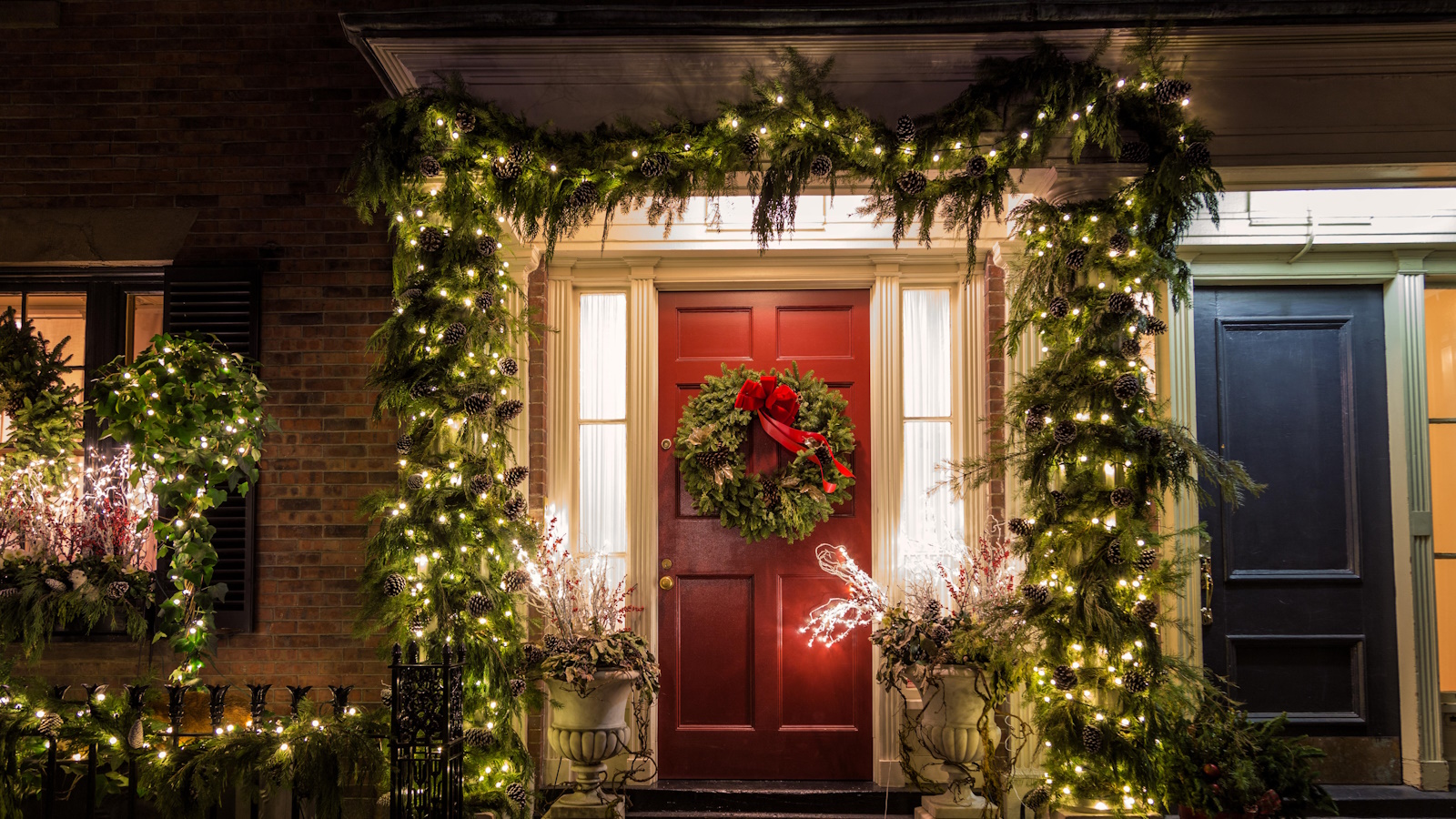 Chicken wire Christmas decorations are my favorite festive design hack – I’m convinced this unusual trend is here to stay
Chicken wire Christmas decorations are my favorite festive design hack – I’m convinced this unusual trend is here to stayThis seasonal decorating trend is going nowhere, and it's the secret to professional-looking festive foliage designs
By Rachel Bull
-
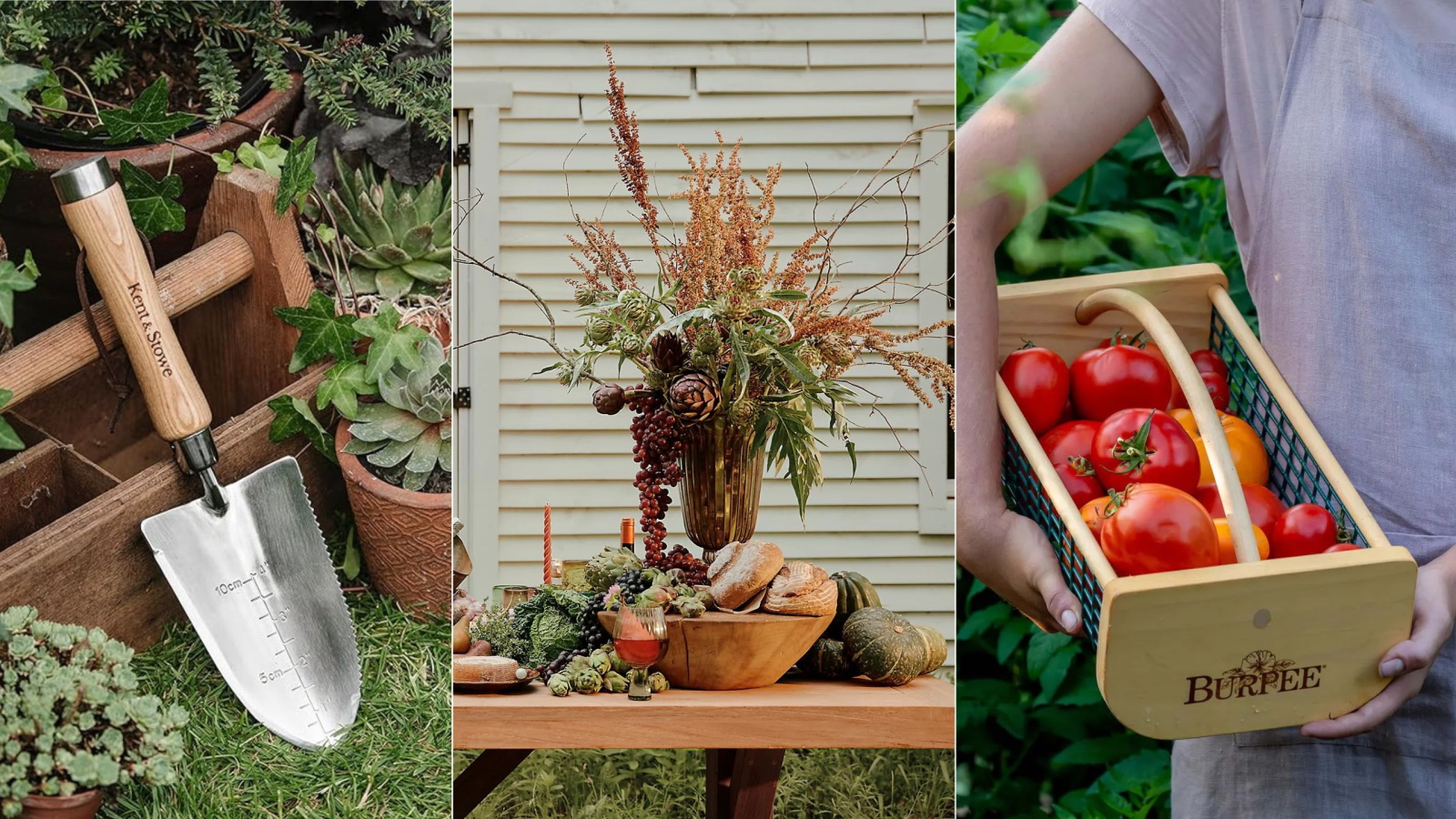 15 beautiful gifts for gardeners – we promise you won't find anything more stylish to give this Christmas
15 beautiful gifts for gardeners – we promise you won't find anything more stylish to give this ChristmasFrom statement vases to carefully crafted tools, these products are sure to bring joy to the garden-lover in your life
By Tenielle Jordison